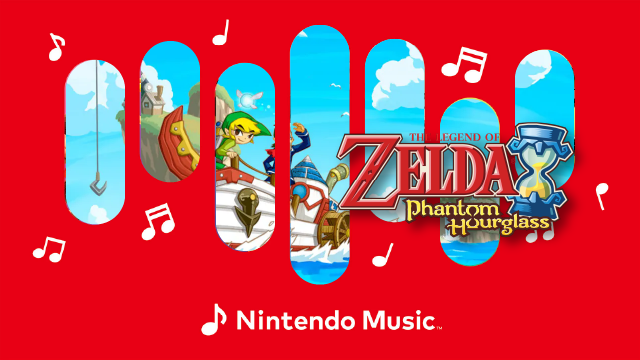The cancelled Nintendo and Sony SNES-CD project stands as one of the most significant turning points in the gaming industry.
What started as a collaborative effort to create a CD-ROM add-on for the Super Nintendo Entertainment System (SNES) ultimately gave rise to the Sony PlayStation, fundamentally changing the video game hardware landscape.
This historic decision not only impacted Nintendo and Sony but has also shaped decades of competitive development among leading gaming companies, including Nintendo, PlayStation, and Xbox. In a recent interview, Shuhei Yoshida—former president of SIE Worldwide Studios—shed new light on what it was like at Sony during the Nintendo partnership and the project's abrupt ending.
Yoshida revealed that multiple functional prototypes of the SNES-CD system existed, and that the hardware was essentially completed, close to the manufacturing stage.
"We had several finished versions of the prototype," Yoshida recalled.
"The system was done, almost ready to be produced, and there were even completed games.
I tried one—a space shooter.
While interesting, it still relied on Super Nintendo's technology, so it had its limitations." The partnership’s unraveling remains an iconic moment.
At the eleventh hour, Nintendo chose not to move forward with Sony, ultimately cancelling the deal.
Yoshida reflected on this, expressing a surprising benefit to the outcome: "It was almost advantageous that Nintendo ended the project.
Had we continued, the Sony team would have remained part of a Nintendo system.
What happened instead was far more significant." This series of events led Sony to develop and launch its own console.
The original PlayStation was released in December 1994 in Japan (and September 1995 in North America), and it quickly outsold Nintendo's subsequent system, the Nintendo 64.
As of 2006, the PlayStation had surpassed 100 million units sold, overshadowing the Nintendo 64's global lifetime sales of around 33 million units.
Sony’s entry propelled a new era of technological innovation and competition, profoundly influencing the direction of the gaming industry. Reflecting on the present state of gaming, Yoshida recognized the healthy rivalry among the three major players: "Nintendo essentially created their strongest competition.
However, competition is vital for growth.
Today, Xbox, Nintendo, and PlayStation are pursuing unique paths, which is excellent for the games industry as a whole." The legacy of the cancelled SNES-CD deal remains emblematic of how innovation can emerge from unexpected setbacks.
The event spurred new platforms and experiences, including the ongoing evolution of the Nintendo Switch, PlayStation’s continued hardware innovations, and the growing digital storefronts like the Nintendo eShop.
As the gaming industry continues to advance, the story of the Nintendo-Sony partnership reminds us how pivotal moments can define generations of gamers and shape the future direction of entertainment technology.
What started as a collaborative effort to create a CD-ROM add-on for the Super Nintendo Entertainment System (SNES) ultimately gave rise to the Sony PlayStation, fundamentally changing the video game hardware landscape.
This historic decision not only impacted Nintendo and Sony but has also shaped decades of competitive development among leading gaming companies, including Nintendo, PlayStation, and Xbox. In a recent interview, Shuhei Yoshida—former president of SIE Worldwide Studios—shed new light on what it was like at Sony during the Nintendo partnership and the project's abrupt ending.
Yoshida revealed that multiple functional prototypes of the SNES-CD system existed, and that the hardware was essentially completed, close to the manufacturing stage.
"We had several finished versions of the prototype," Yoshida recalled.
"The system was done, almost ready to be produced, and there were even completed games.
I tried one—a space shooter.
While interesting, it still relied on Super Nintendo's technology, so it had its limitations." The partnership’s unraveling remains an iconic moment.
At the eleventh hour, Nintendo chose not to move forward with Sony, ultimately cancelling the deal.
Yoshida reflected on this, expressing a surprising benefit to the outcome: "It was almost advantageous that Nintendo ended the project.
Had we continued, the Sony team would have remained part of a Nintendo system.
What happened instead was far more significant." This series of events led Sony to develop and launch its own console.
The original PlayStation was released in December 1994 in Japan (and September 1995 in North America), and it quickly outsold Nintendo's subsequent system, the Nintendo 64.
As of 2006, the PlayStation had surpassed 100 million units sold, overshadowing the Nintendo 64's global lifetime sales of around 33 million units.
Sony’s entry propelled a new era of technological innovation and competition, profoundly influencing the direction of the gaming industry. Reflecting on the present state of gaming, Yoshida recognized the healthy rivalry among the three major players: "Nintendo essentially created their strongest competition.
However, competition is vital for growth.
Today, Xbox, Nintendo, and PlayStation are pursuing unique paths, which is excellent for the games industry as a whole." The legacy of the cancelled SNES-CD deal remains emblematic of how innovation can emerge from unexpected setbacks.
The event spurred new platforms and experiences, including the ongoing evolution of the Nintendo Switch, PlayStation’s continued hardware innovations, and the growing digital storefronts like the Nintendo eShop.
As the gaming industry continues to advance, the story of the Nintendo-Sony partnership reminds us how pivotal moments can define generations of gamers and shape the future direction of entertainment technology.






